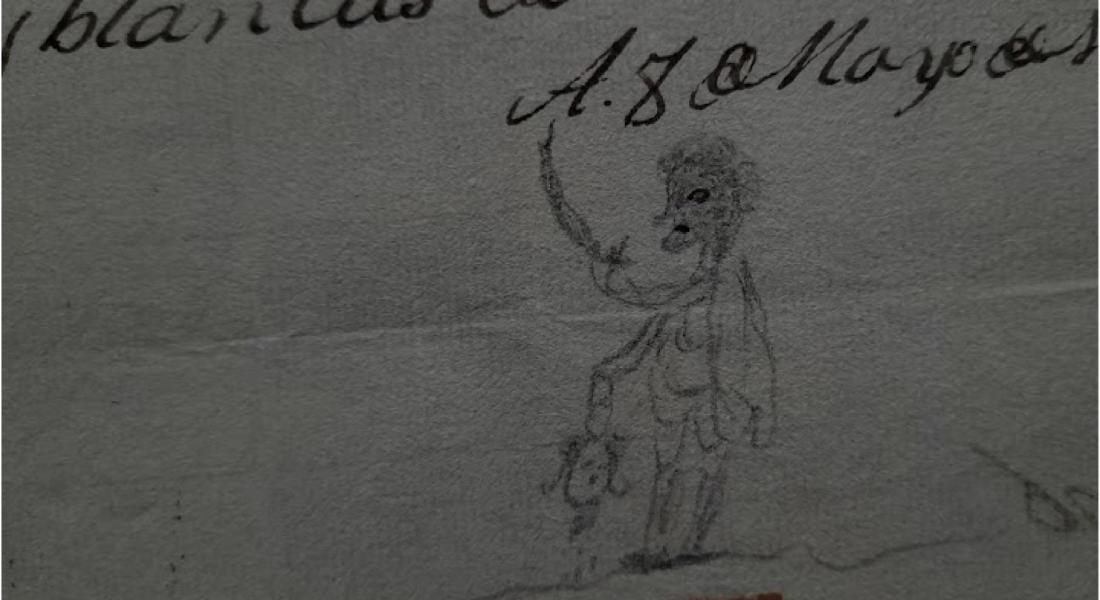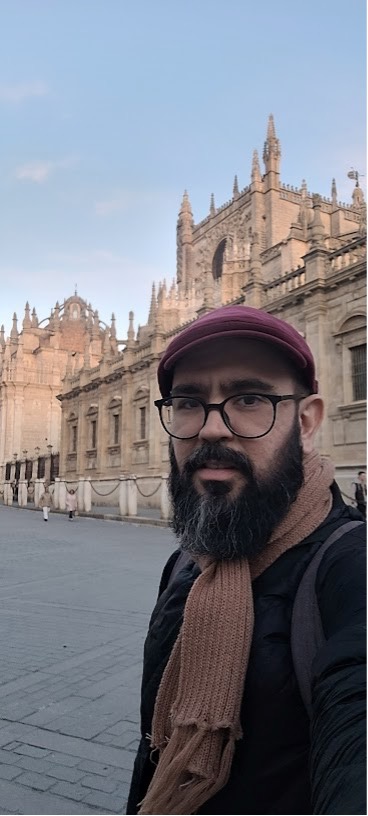
From February to March 2024, Kellogg PhD Fellow Eduardo Febres (romance language) traveled to Spain on a Kellogg Institute Graduate Research Grant to conduct research for his project “The Cryptogamous Machine: Simón Rodríguez and the Cultural Technologies of the Creole Enlightenment”. Upon his return, he sent the following summary of his work.
My research delves into the intricate relationship between racial differences, emerging print culture, and the formation of modern nation-states in Latin America during the early 19th century. Focusing on the pioneering work of Simón Rodríguez, a Venezuelan educator and thinker, I aimed to unravel the influence of marginalized, racialized communities on the development of revolutionary typographic techniques that challenged the dominant linear distribution of printed words.
Through a multidisciplinary approach grounded in cultural criticism, I explored how Rodríguez's aesthetic and technical experimentation with print media transcended the boundaries of the white elite's written discourse. By closely examining his unique "tableaux" compositions, I sought to uncover the traces of popular communication techniques employed by Indigenous, Afro-descendant, and mestizo populations, which Rodríguez transposed onto the typeset page.
 My research journey in Sevilla (from February 25th to March 3rd 2024) provided the opportunity to examine historical documents that shed light on the complex dynamics between race, literacy, and access to knowledge during this pivotal period. Among these documents, two stood out as particularly illuminating.
My research journey in Sevilla (from February 25th to March 3rd 2024) provided the opportunity to examine historical documents that shed light on the complex dynamics between race, literacy, and access to knowledge during this pivotal period. Among these documents, two stood out as particularly illuminating.
The first was a broadside from 1790, originally posted on a wall in the Caracas square. This powerful artifact denounced the creole elite's concealment of a royal decree from Spain that ordered the granting of rights to enslaved individuals. Remarkably, it featured a pencil drawing depicting a black subject wielding a machete and holding a detached white person's head – a potent symbol of resistance and uprising against oppression.
The second document was a letter written by a self-taught "pardo" (a person of African descent) who had succeeded in becoming part of the church through his own merits. Despite his accomplishments, he was punished when he requested a higher position, and the letter sought forgiveness. This poignant account highlighted the struggles and resilience of racialized populations in their pursuit of knowledge and social mobility in the face of systemic barriers.
Beyond these specific documents, an unexpected discovery emerged from an exhibition at the Archivo General de Indias, inaugurated on March 1st, which focused on the lettered and print culture of Peru and Alto Perú (present-day Bolivia) – two regions central to my research. This exhibition provided invaluable insights into the intersections of literacy, race, and nation-building in these areas, further enriching my understanding of the broader context in which Rodríguez's work emerged.
Through this research, I have gained a deeper appreciation for the complex interplay between the printed word and the diverse, often marginalized, voices that shaped the formation of Latin American nations. Rodríguez's revolutionary typographic techniques not only challenged the linear distribution of knowledge but also served as a powerful critique of the limitations of dominant ideas and media in capturing the diversity and local contexts of these emerging nations.
Moving forward, I plan to further explore the long-term impacts of these early media dynamics on the co-evolution of art, technology, and nation-building in Latin America. By situating my research in the Global South, I aim to contribute to a more inclusive understanding of the intersections between race, print culture, and the construction of national identities.
This archival journey has been a transformative experience, unveiling the intricate tapestry of voices, struggles, and resistance that wove together the fabric of Latin American nationhood. It has reinforced the importance of embracing diverse perspectives and acknowledging the profound influence of marginalized communities on the very foundations of our modern societies.





